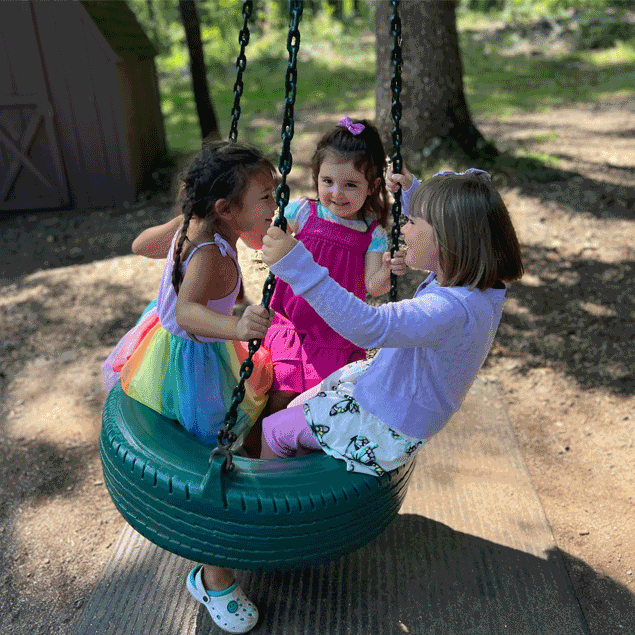Parenting Through the Renbrook Years

Helping Your Child Navigate Friendships
by Terese Brennan-Marquez, LCSW
Children think about and experience friendships differently at all stages of development. As a parent, you can help your child navigate friendships in healthy and productive ways. Parents can support their children if they experience challenges with a friend by viewing the situation through a developmental lens. This post offers a general description of typical development and what you can do to help your child navigate friendships.
Age 3-6

Children at this stage struggle with perspective-taking and get into disagreements with friends with different opinions. They believe their experience is true and cannot comprehend a different truth. Friendships are often fluid, with friends being whoever is available to them. They may have preferences for specific friends but often can play with whoever is involved in the present activity.
Parents of children this age can help them learn that there are many perspectives. Expecting children at this age to resolve their own conflicts is a lot to ask, and parents can teach conflict resolution by modeling it and stepping in to help children work things out.
Age 5-9

Children start to have more preferences for specific friends beyond a common activity. At this stage, children remain self-centered in their friendships, meaning they need to feel a constant sense of what the friendship is doing for them. This is the stage where you may see friendship become a bargaining chip and children may threaten “I won’t be your friend if…”
Parents can remind and model kindness to others through words while acknowledging that it is hard to have someone not do what you would like them to do. Talking to your child about turn-taking in friendships and reminding them that it is always important to think about others’ needs, as well as your own, is an effective way to support their development as good friends.
Age 9-12

Perspective-taking begins developing sometime during these ages. Now, children are focused on reciprocity, fairness, and the rules. They are also concerned with fitting in, so this is a time when they might make decisions to follow a friend group even if it is not the best decision for them. During this developmental stage, friendship drama occurs over feeling left out or leaving others out.
Now, things get tougher for parents. Children need to learn to negotiate their own relationships, and at the same time, they may need adult intervention. Reminding your child of different perspectives, helping children remain kind and empathetic despite their feelings of jealousy and unfairness, and being available to just listen work best at this stage.
Age 12-15

Friends are becoming more important to children at this time. As children move toward adolescence, friendships may become more important than family. This is developmentally appropriate as children are beginning to learn the importance of maintaining healthy relationships in anticipation of leaving home. Friendships are often built on confiding thoughts and feelings and finding common ground. As they get older, they become better at compromising, as deepening friendships involve genuine caring about another’s well-being.
The role of parents as children get older is to be supportive of their burgeoning independence. Children still need the emotional support of their parents as a listening ear and a sounding board for independent decision–making. It can be helpful to share your own values about healthy friendships, but it should be done in a way that will not be perceived as critical of your child’s choices.
Overall tips for parents…
- Teach your child to speak assertively (directly and clearly stating their needs and wants while managing tone).
- Do not get overinvolved in the drama – instead, help your child figure out what is best for them.
- Model good friendships – behave how you want them to behave.
- Help them learn empathy – when they share a friendship issue with you, help them develop perspective.
- Support their independence in problem-solving by letting them solve the problem with your guidance.
- Help your child distinguish between a healthy and unhealthy friendship – they will need your guidance and support to end an unhealthy friendship.
- Lastly, take advantage of the great resources Renbrook School has by encouraging your child to talk with their teacher or counselor when they need friendship help.